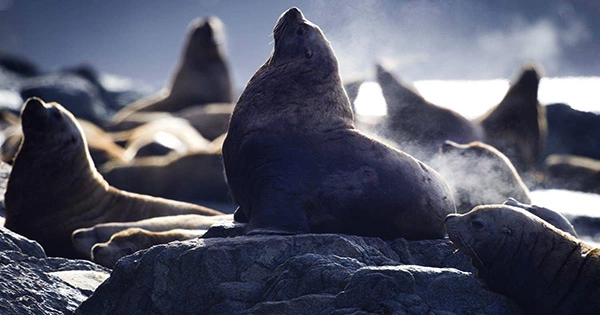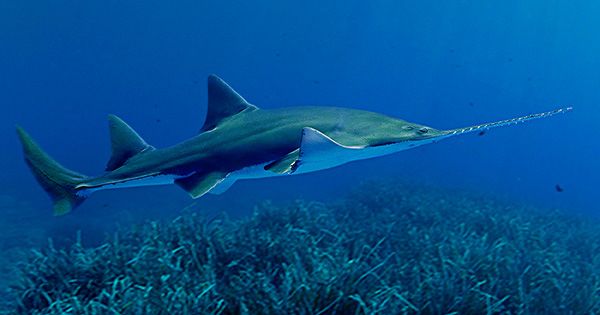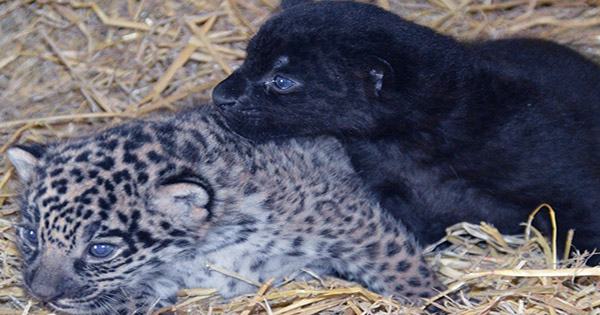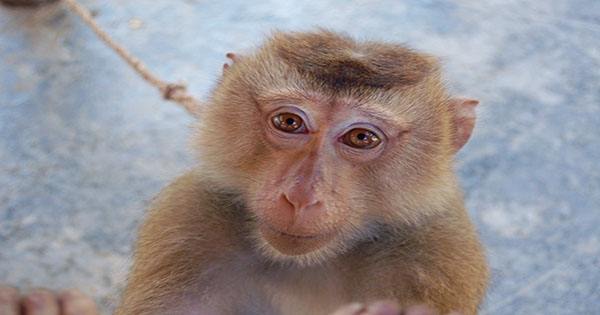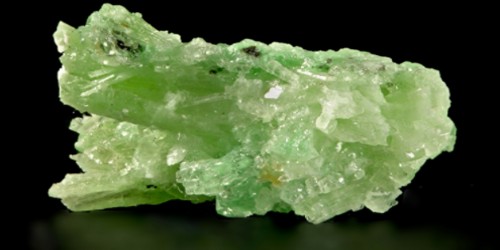Sea lions are the sea’s doggos in many respects. For example, they hunt in groups and will go to any length for a scooby feast. And, like a pupper, they’ve found that sweet spot of intellect where they’re smart enough to pull off a spectacular food theft but not so cunning that they’ll flee the scene. Workers at the Rant Point farm in Tofino, British Columbia, can attest to this. A swarm of about two dozen sea lions broke into the industrial salmon farm a few weeks ago, overcoming the netting and electric gates erected to keep them out of the delectable feast inside, and began stuffing themselves stupid on fish.
They’ve been there since then. “They’re holding an all-you-can-eat buffet right now,” said Bonny Glambeck of Clayoquot Action, a local environmental organization. Cermaq, an aquaculture company located in Oslo, owns Rant Point, which can hold up to 500,000 farmed salmon at any given moment. It’s “the equivalent of building a cattle feedlot in the heart of Banff National Park and then being astonished when the bears and wolves show up,” Glambeck told the Toronto Star because sea lions generally hunt by corralling their prey into one spot and plucking down individuals one-by-one.
The sea lions most likely came into the farm because harvesting season had begun, Cermaq claimed in a statement to the Star. The fish are ordinarily kept apart from the surrounding waterways by a series of net fences, but the harvesting procedure creates “options for access” that aren’t normally available, according to the business. However, while witnessing a group of sea lions live their best anarchist lives may be healthy for the spirit, it may be harmful to the sea lions. Cermaq is presently doing all they can to get rid of the pinniped party animals since it turns out huge businesses don’t appreciate having their goods stolen from right under their noses.
“In conjunction with DFO [Fisheries and Oceans Canada] biologists, attempts to dissuade the sea lions and remove them from the net enclosures with the least amount of injury to the animals have been ongoing,” DFO officials told CTV. The government added that while there is a “strict requirement” that no sea lions be killed, the animals have so far “not been deterred by passive deterrent efforts to remove them,” such as loud bangs.
“I think the longer they remain, the more accustomed they get, and all the sounds and other things simply become background noise,” said Andrew Trites, director, and professor at UBC’s Marine Mammal Research Unit. “As a result, it’s not going to work.” However, the longer the sea lions remain on the farm, the more concerned local conservationists become for their safety.
“We saw a sea lion go directly into a ‘bird net,’ which is a hanging net above the cages, after jumping over one of the gates.” “He fought for a long time to get free,” Glambeck told The Guardian. “There are a lot of ropes and hoses everywhere, so entanglement is a growing worry.” “They’re incredibly bright creatures,” she said, “and it’s very depressing and upsetting to watch these animals potentially hurt by this industry.” Rant Point is currently involved in a harvest battle between farmworkers and sea lions.
According to the Star, the Cermaq statement reads, “Several procedures are being used to minimize any possible repercussions, including the use of confinement materials and active harvesting of selected cages.” “By the third week of April, the site will be completely harvested.” The sea lions are unlikely to depart on their own until then, according to Trites. He continued, “This is a time of year when guys in particular bulk up.” “They’re hungry for more food, and these fish farms seem like we just left the deli,” says the narrator.
